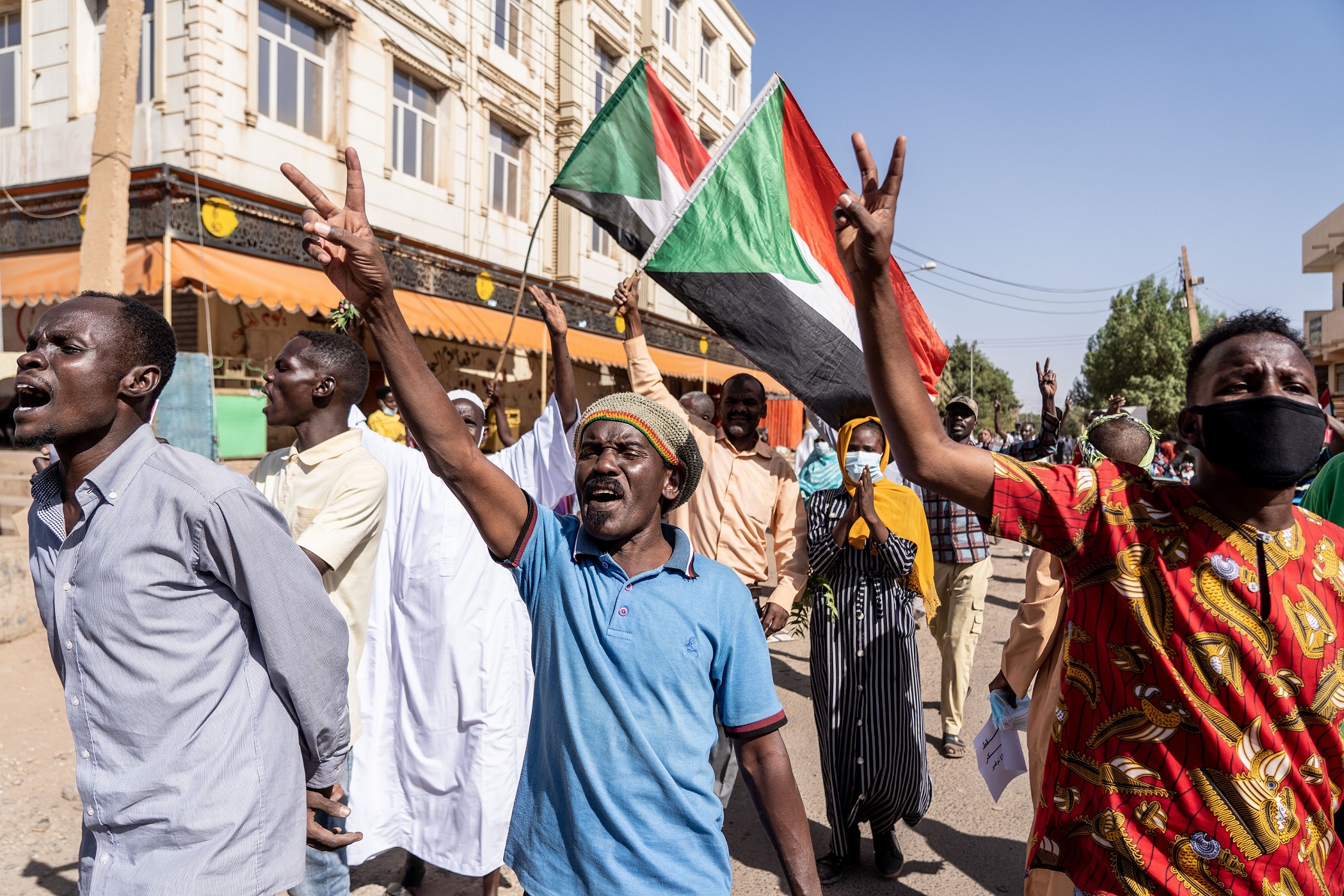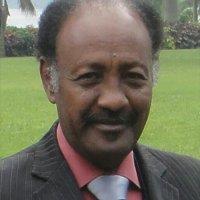التغيير الهائل الذي أحدثته الثورة السودانية في مختلف الأوساط، وما تلا ذلك من تناحرٍ حاد حتى بين القوى السياسية المتحالفة، مهد الطريق لحل الفريق البرهان، رئيس مجلس السيادة السوداني والقائد العام للجيش، للحكومة وضع الصحافة السودانية على محك الاختبار.
فالصحفيون وجدوا أنفسهم إما أن يضعوا ميولهم السياسية جانبا وينحازوا للمعايير المهنية لإحداث التوازن بين كل الأطراف، أو أن يهزمهم القصور المهني فينحازوا لأي من تلك المعسكرات. وما بين الفعل ورده يعلو صوت الاستقطاب ترهيباً وترغيباً متأثراً بهشاشة المهنة، والانقسام المجتمعي وتناحر الفاعلين في الساحة.
مع بدايات الألفية الجديدة عاشت الصحافة السودانية ظروفاً مغايرةً متأثرةً بالطفرة الاقتصادية آنذاك. كان النظام السابق قد انحاز لسياسة الترغيب وتخلى نسبياً عن الترهيب، وتعاظم حجم الإعلان مع انتعاش مجال الأعمال. ترتب على ذلك تزايد عدد الصحف اليومية، وتضاعف عدد الصفحات عامةً، فتحسنت جودة الطبع وشروط العمل بالمؤسسات الصحفية بشكل نسبي.
لذلك، فإن عملية تقييم المرحلة مهنياً حتى سقوط النظام تبدو معقدة؛ فقد ينظر للمعطيات السالفة الذكر كمقوماتٍ لطفرةٍ ظاهرية في الصحافة، لكنها أسقطت الركن الأخلاقي للمهنة باستخدام تلك الأدوات المتاحة لتزييف الواقع عوضاً عن نقله مجرداً للجمهور.
تمخض عن نجاح ثورة ديسمبر/كانون الأول واقع جديد للصحافة والصحفيين مهد لمرحلةٍ جديدةٍ، القاسم المشترك بينها وبين حقبة الحكم السابق هو القصور المهني وإن تعددت مظاهره ومبرراته. لقد مضى الحكم والحزب الحاكم بماله وبرجاله ولم يحدث أي تغيير كبير فيما يخص جوهر المهنة. وفي هذا الجو، شكل التناحر بين الليبراليين والمحافظين ذروة الانقسام السياسي بين الصحفيين.
عمد غالبية الصحفيين لإثارة الجدل عبر قصصهم الصحفية أو عبر التوجه للفضائيات كضيوفٍ على البرامج بعباءة “الصحفي والمحلل السياسي"، تكفل لهم الشهرة اللازمة والتعبير عن آراء سياسية لا علاقة لها برصانة التحليل.
الخلط بين ما هو سياسي وما هو مهني مثّل الإخفاق الأبرز للممارسات الصحفية منذ نجاح الثورة. ذلك أن بعض الصحفيين انحازوا لمصالحهم الذاتية، أما البعض الآخر فقد انحاز للتيار الليبرالي الذي قدم نفسه كأبٍ شرعي للثورة، فيما انحاز البعض الآخر لتيار المحافظين.
يعبر عن هذا الواقع الخبير الإعلامي علي شمو بقوله: "بعض الصحفيين كانوا مؤمنين بالتغيير وتأثرت معالجاتهم الصحفية وتعليقاتهم به، وبعضٌ متقلبٌ الولاء، وفريقٌ ثالث اتبع مصالحه بحيث لا تنطلق تعليقاته من قناعة".
كنتيجةٍ لمثل هذا الانحياز حرمت الساحة من التوازن المهني، "فشل الصحفيون فشلاً ذريعاً في الموازنة بين الميول السياسية والتجرد المهني" حسب شمو الذي يضيف: "بعض الصحفيين لا ينتبهون للتوازن كقيمةٍ أساسية من قيم الصحافة، وإذا كان هناك صعوبة في الحفاظ على التوازن في التحليل والتعليق فإن الأصل في الخبر أن يكون مقدساً، وعدم القدرة على الموازنة ينزع عن المهنة احترامها عندما تفشل في عكس الواقع بالدقة، بل تزييفه".
بعض الفضائيات تتعمد إثارة الجدل وتعمق الأزمة، وهي توجه آلة التصوير والتعليق. في بحثها عن الإثارة وتعميق حالة الاستقطاب“. غالبية القنوات تختار الانحياز السياسي كمعيارٍ أوحد للاستضافة مع إسقاط المعايير الأخرى المتعلقة بالمهنية الصحفية، أو بالتحليل أو العلوم السياسية. وبذلك، تحول مفهوم التحليل السياسي إلى مجال للخلط بين المهنة والنشاط السياسي.
عقب نجاح الثورة تم حل اتحاد الصحفيين باعتباره موالياً للنظام البائد. نادت مجموعات موالية للثورة سعياً لقيام اتحادٍ يخلف السابق، لكن سرعان ما اختلفوا فيما بينهم، وربما كانت التطورات المتسارعة هي التي أجّلت تشكيل الاتحاد؛ فلم يكن أولوية لدى الصحفيين ولا الدولة. وينسحب نفس الأمر على مجلس الصحافة والمطبوعات.
يقول الأمين العام للمجلس: "حالياً ليس لدينا مجلس للصحافة يضع السياسات ويقرر. انتهت فترة المجلس السابق عام 2019 وفق قانونه وللأسف لم يشكل مجلس حتى الآن وترتب على التعطيل آثارٌ سلبية على المهنة".
أحد هذه الآثار السلبية التي أدى إليها غياب مجلس الصحافة؛ هو ما يعبر عنه الدكتور عبد العظيم عوض بالواقع المر والمرتبك، والفوضوي بدرجة كبيرة".
ويضيف عوض في حديث لمجلة الصحافة: " في ظروف السودان الحالية حدث خلط كبير بين التعاطي السياسي والإعلامي، ومن نراهم اليوم هم ناشطون وليسوا صحفيين".
النقلة الكبيرة قد يكون لها تأثيرها مثلما أثرت على مختلف وجوه الحياة؛ لكن الخبراء يشخصونها بتفاصيل أكثر. يعتقد الأستاذ شمو أنها أزمة ضمير تتعلق "بذمة الصحفي وتقيده بقواعد السلوك المهني، وإذا كان القانون قادر اً على ضبط بعض الجوانب المهنية فإن الميثاق الأخلاقي هو المعيار للتعامل مع الجوانب التي لا تخضع للقانون"، على حد قوله.
وعند الأمين العام لمجلس الصحافة فإن غياب المؤسسات وقلة فرص التدريب هما أساس المشكل؛ ذلك أن المؤسسات هي الحارس حتى لا تنزلق الممارسة نحو الفوضى، كما أن التدريب يوفر المحددات المهنية التي تسهم في خلق التوازن". يقول د. عوض: "لاحظت عقب عودتي كأمين عام لمجلس الصحافة والمطبوعات-دون أن يكون لدي إحصاءات دقيقة- أن كثيراً ممن التحقوا بالمهنة مؤخراً ليسوا صحفيين، بل ناشطون سياسيون بدأوا يتعاملون مع وسائل التواصل بتحرير الأخبار ثم التحقوا بالصحف، بمعنى أن وجود بعض الفوضى قضى على أي ضوابط يمكن أن تحكم المهنة ". ويستطرد قائلاً: "فيما سبق كان لدينا لجنة لقيد الصحفيين تضبط الأبواب وهي غير موجودة منذ قيام الثورة، وحالياً يمكن لأي أحد كان العمل في الصحف"، ويضيف: "أعرف البعض الذين كانوا يعملون في مهن لا علاقة لها بالصحافة التحقوا بالصحف وتبوأوا مراكز قيادية".
أصبح من المعتاد النشر اليومي لجداول المسيرات والحشود الشعبية، يتجدد تراشق الفرقاء بعد كل مظاهرة، ما يعمق من الانقسام المجتمعي ويفاقم الاستقطاب، ورغم الحاجة الماسة لصحافة متمكنة من معيار الموازنة بين ما هو إعلامي وما هو سياسي إلا أن القصور المهني لا يسعف الصحفيين للحد من حدة الاستقطاب بين الفرقاء، بل إنهم يمعنون في الانحياز للأطراف المتناحرة.








































